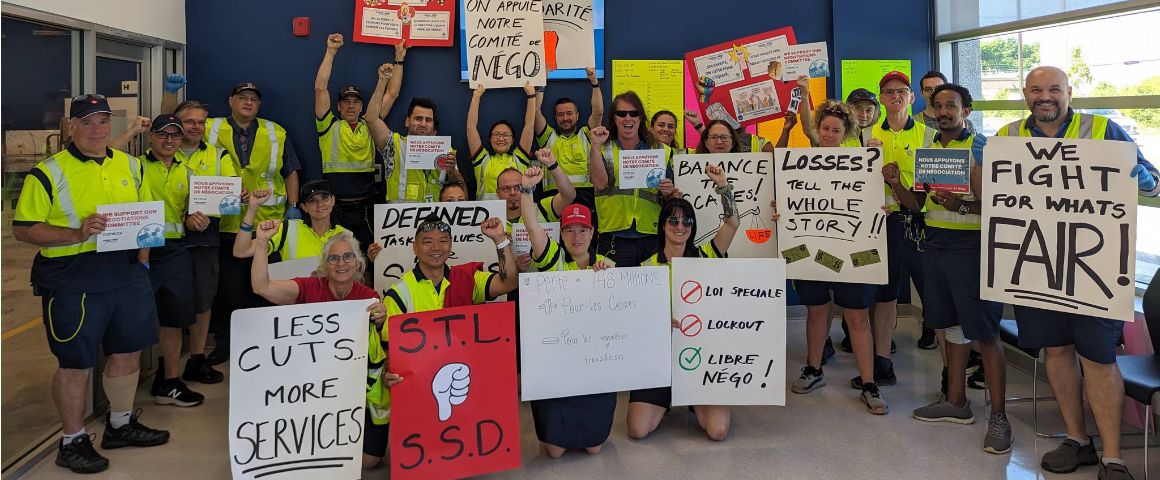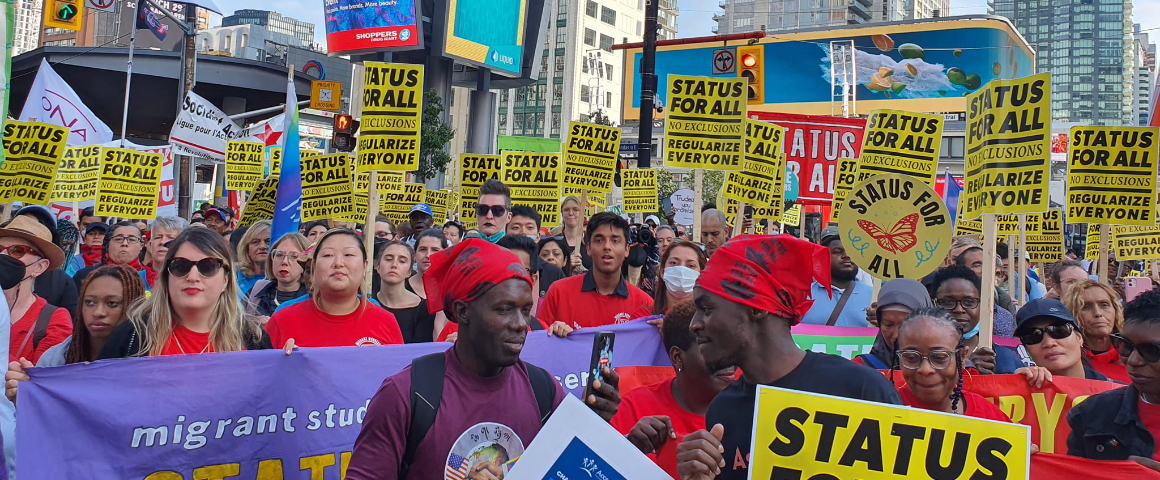Special to PV
Bombardier’s recent announcement that it will cut 550 jobs at its Thunder Bay Rail Transportation facility has sparked outrage within labour, community and political circles. It has reignited the debate around public takeover of industries that are key to the economy and society.
The Thunder Bay job cuts – half the plant’s workforce – will be devastating to the Northern Ontario city, where Bombardier is the 8th largest employer. The employment rate is already 5.5% lower than the Ontario average, at around 60%. The combined effect of losing hundreds of Bombardier jobs plus hundreds more spinoffs will drive that figure even lower, as people give up hope of finding work and simply leave the workforce. In 2009, Thunder Bay mayor Lynn Peterson estimated that if Bombardier created 250 new jobs from Toronto transit orders, the spin off effect would create in the area of 800 additional jobs. Using this same formula, losing 550 jobs at Bombardier will jeopardize 1760 spin offs in Thunder Bay.
The average employment income in Thunder Bay is already $8000 lower than the provincial average, a figure that will tumble dramatically with the loss of good manufacturing jobs.
During the previous three years, Bombardier announced 15,000 job cuts worldwide, including 3000 in Quebec and Ontario in November 2018. Over that same period, the corporation received at least $4 billion in public bailouts from the federal, Ontario and Quebec governments.
The spectacle of Bombardier receiving billions while cutting thousands of jobs and making monster profits has been exacerbating for even bourgeois economic analysts. The company has been described as being in the subsidy business, and “the political equivalent of a protection racket.” Time and time again, Bombardier executives have begged for public funds, all the while paying themselves millions in bonuses.
The situation is like an endless cruel treadmill, on which workers and communities are chained by chuckling corporate fat cats who fleece them day after day. It’s hard to witness this and not conclude that private corporations like Bombardier have proven beyond a doubt that they cannot be relied upon to provide good jobs, wages and benefit for working class people in Canada.
US protectionism to blame?
Perhaps surprised by the breadth and speed of the outburst of public anger, Bombardier has offered up an explanation – of sorts. The company claims that the Trump administration’s “Buy America Act” has put its contracts with US cities at risk, so it must move production to the US in order to secure its orders there. This explanation has been met with public skepticism, including in business circles, as Bombardier already has 16 US sites including 6 in Transportation. Furthermore, there is no evidence that Bombardier has missed out on any manufacturing contract in the US because of Buy America.
What is more likely is that Bombardier is citing Buy America as a convenient pretext to move more of its production to lower wage and lower regulation jurisdictions, including non-union right-to-work states in the US. They have some recent experience with this. In 2017, Bombardier negotiated a contract with Airbus to build C-Series jets in Alabama. Thousands of new jobs in Canada were killed in the process, but Bombardier hit the jackpot – the following year, its product orders increased by over 44% and earnings jumped by a whopping 235%.

Holding workers hostage
Bombardier has carefully cultivated its public image as a struggling Canadian firm that needs constant – and colossal – public bailouts in order to stay in operation. In the comfortable shadow of this image, parties and governments at different levels have been busy finger pointing and trading blame in a cynical spin game. Ottawa accuses Ontario of making “empty promises” of contracts, Ontario faults Ottawa for not providing promised funding, and on and on.
Unfortunately, the labour movement has also been drawn into this narrative. Unifor, the union representing workers at Bombardier, has called for increased government investment in transit to save the Thunder Bay jobs. In and of itself, this is true – there certainly does need to be increased public investment in transit. But this prescription is limited, to the point that its benefits are immediately jeopardized, by the fact that it doesn’t expose and confront the real issues that Bombardier represents.
The fact is, Bombardier is a hugely profitable corporation, operating in 41 countries around the globe, that made profits of $575 million in 2018. In the 1st quarter of 2019, its net earnings were $239 million for three months, 443% higher than a year earlier. Expected 2019 sales revenues for the Transportation division are $8.75 billion, with 1st quarter contract assets in this division $233 million higher than the same period a year ago.
This is not the friendly family-owned Canadian company that brought you the Ski-Doo and who now needs a helping hand. It’s a vicious multinational who is holding the working class hostage in another bid to get its hands into the public purse. Faced with such an adversary, there needs to be a much sharper response than simply calling for more streetcar orders.
Without question, there is a link between public transit, jobs and environmental justice. The key element, though, is the degree to which governments are prepared to intervene in the economy in order to forge this link. In response to Bombardier’s latest job cut announcement, there has been an increase in calls for the company to be placed under public ownership and democratic control, in order to secure sound economic, social and environmental stewardship in the transportation industry.
Intervention on behalf of workers and environment
One of the key organizations raising this demand is the Communist Party of Canada, whose call for the public takeover and operation of Bombardier is part of a broader set of immediate demands for jobs, climate justice and increased public transit. While the CPC holds that only socialism can systemically place the needs of workers, communities and the environment ahead of profit, it insists that the alarming realities of mass job loss, impoverishment and climate change require radical and comprehensive state intervention in the immediate term, on behalf of workers and the environment.
The Communist Party’s proposed action plan includes: a full employment strategy public intervention in the economy; plant closure legislation and public takeover of corporations that are moving their operations to low wage jurisdictions; free urban public transit in all major cities; high-speed rail and rapid inter-urban rail transit as an alternative to highway and airline use; and a domestic vehicle industry to build affordable, and fuel-efficient electric cars and light industrial vehicles.
A key first step to achieving these immediate aims is to fight for and win the public takeover of huge transportation corporations such as Bombardier.
The key question, though, is whether the labour movement will take up the call and engage this fight on behalf of the working class. Certainly, workers and their communities cannot afford otherwise.




